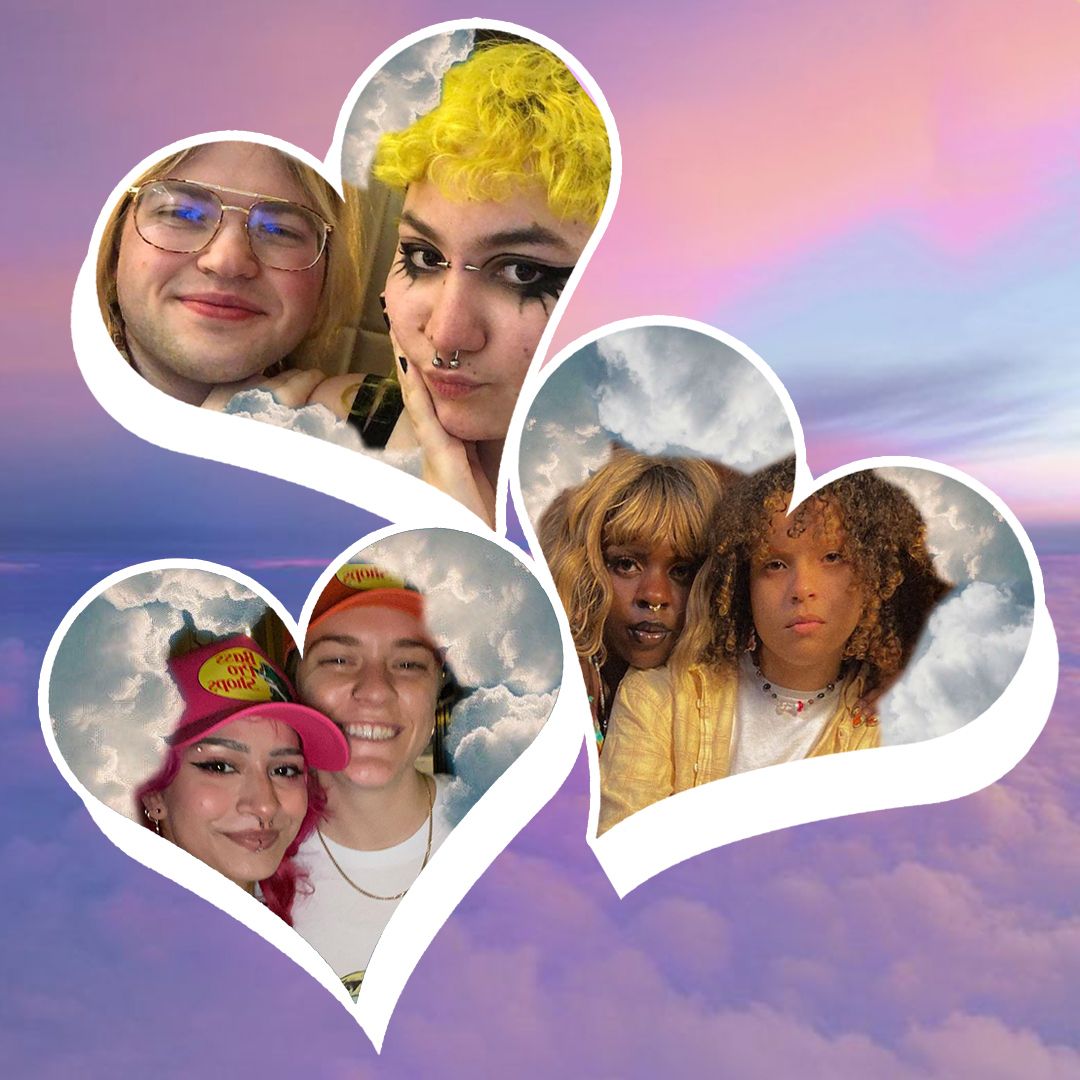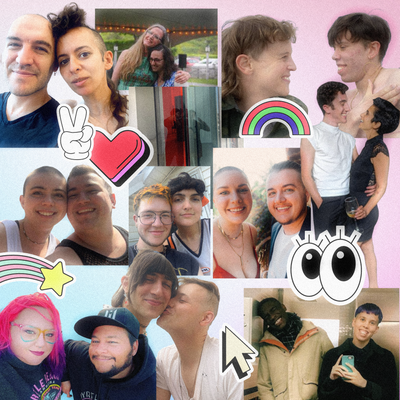When I first heard the term “ghosting,” I was a junior in high school.
The year was 2017, and my best friends were talking about how their cool friend from Massachusetts had taught them this new word.
Ghosting (noun)
When a person’s really into you and then suddenly disappears. Instantly. Like, poof!
Though there have been several think pieces over the past decade on ghosting, it’s still something we collectively haven’t gotten used to. Because let’s face it, when a person of interest disappears into thin air, we’re left haunted, wondering WTF?
SEE ALSO: Why are so many gay couples in open relationships?
Case in point: Joe, 21, a student at the Savannah College of Art and Design and a recent victim of ghosting. After talking to someone online for a few months, he decided to fly cross country to meet them in person. The two eventually met, but when he returned home, everything changed. “Communication dwindled down,” he tells Very Good Light. “One short week later, we were never to speak again.”
Joe’s experience, of course, is now normalized. Recently, a new phenomenon has been occurring.

Zombieing (noun)
When you think the relationship couldn’t be more dead, an old flame rises up from the grave you dug them in (or they dug themselves in), begging for that one last chance.
Enter the love zombies. These brain (or, should I say, heart)-eating monsters will never stop coming back for vengeance until defeated. They poke, prod, and pester until you have no choice but to say, “Fine, I’ll go on that coffee date even though you completely ignored my existence for the past few months.”
The act of “zombieing” is caused once the relationship, which seemingly had no chance of rebirth, comes back around. The second lap around the dating track with someone is rarely as pretty as the first time. Much like the undead, they come back covered in dirt, missing an eyeball, getting mad at you for staying out with your friends too late or sending you a text canceling last minute on that reunion coffee date.
It happened recently to Taylor, 21, a student at the University of Southern California. According to her, zombieing was almost unavoidable. “A friend and I had tried things romantically after knowing each other for a long period of time, only for it to not work out,” she tells us “In order for him to not feel awkward in social settings, he rose from the dead to mend things between us. Definitely wasn’t pretty.”
Love zombies know no bounds. They’ll climb every hill and scour the earth until they get one last piece of your heart or your dignity. Alex, a 21-year old student in Georgia, spills the details on one of the most shameless encounters with zombieing she’s had. “I dated someone when I was in high school, not even 16-years-old yet. We stopped talking by 2016, but this past summer, he had a bondsman reach out to me to bail him out of jail.”
So, how do we move on? What do we do after a love zombie attacks?
“You might be tempted to blame yourself for the loss of connection, but the truth is, their disappearance is a reflection of their relationship habits and not your overall worth,” says Dr. Betsy Chung, a clinical psychologist specializing in relationships and self-esteem.
The blame monster is almost as scary as a love zombie. It haunts, pokes and prods until you simply can’t take it anymore. What do we do when the feeling that maybe we’re the problem sets in? Dr. Betsy explains.
“Instead of getting caught up with the idea that you must’ve done something wrong, try to validate your own feelings about the experience. Perhaps the person who ghosted you isn’t a great fit for you because you are seeking somebody that’s more emotionally expressive and considerate of you.”
Giving a second chance is okay, she says. When it comes to navigating whether or not to invest yourself in the relationship again, Dr. Betsy says to “keep your guard up a little bit but give opportunities to earn a second chance. Gauge their accessibility, their consistency, and willingness to meet your needs. You may want to be cautious of signs of flakiness or lack of consideration for your needs.”
In 2022, you control your own destiny. Don’t allow others to control how you feel. On the topic of getting the power back, Dr. Betsy says to reclaim your power by letting power go. “Let go of the need to ‘fix’ the situation. By doing so, you’re no longer wasting precious time and energy on forcing something to work and redirecting energy toward finding a relationship that does work.”
Which means that though ghosting is still a thing, we can move past it as we identify these love zombies. That’s all to say, reader, beware. These love zombies are everywhere, ready to crawl back, whether it’s for one last rendezvous – or to get bailed out of jail.
READ MORE LIKE THIS










